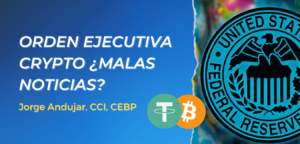Article by Lusnnette Andújar-Rosado, MSW, MN-Prov. LGSW, Connect to End COVID-19 Initiative Ambassador and NASW Member (Minnesota Chapter)
During the COVID-19 pandemic, I was living with my family in a rural area in Wisconsin. As a Latina woman, I observed that at that time there was a lot of uncertainty in the general population about COVID-19 and we needed information to understand this virus and protect us from it. Eventually, we began to get useful scientific information through government agencies, news outlets, and newspapers. However, the Spanish-speaking population that did not know English in the United States continued to need this information in their own language and the need for accessibility to services during the pandemic.
I worked hard to support Hispanic families in my community during this historic time with the language barrier through interpretation and/or translations into Spanish and spreading community resources to support Spanish-speaking families in the area. This is my main reason for applying for the opportunity to be an Ambassador for the NASW Connect to End COVID-19 initiative. I am convinced that bilingual social workers can contribute deeply to this initiative and make a great impact on vulnerable populations such as the Latinx population, promoting their well-being.
Based on the CDC information reported as of May 10, 2023, the percentage of people in the United States with an updated (bivalent) booster dose is 17%. Every day more people are vaccinated against COVID-19 while there are many more who have not been vaccinated even though the efficacy, safety, and above all the level of effectiveness in reducing severe illness and death has been proven. Of particular concern are certain subpopulations who, for a variety of reasons, are at greater risk of severe illness and death from COVID-19 and are not yet vaccinated. Latinx immigrants are such a subpopulation.
Less than 70% of Americans are fully vaccinated with the recommended, updated booster that was approved in September 2022. Since the beginning of the pandemic, over 1.1 million people have died of COVID-19 infection. According to the Minnesota Department of Health, 27% of Minnesotans are up to date with vaccine doses, information updated on August 17, 2023. Of those 27% of Minnesotans, 17.7% are Hispanics. Being up to date on vaccination is the best way to prevent severe illness. More information about COVID-19 vaccines is available on the CDC website.

The misinformation/disinformation that the population has received has caused resistance to vaccination across the nation. Among the Latinx populations, some of the hesitancy for vaccination can also be attributed to the language barrier, literacy challenges, limited transportation, religious beliefs, cultural values, access, and fear of immigration-related consequences like the public charge and/or deportation.
To address vaccine hesitancy, there are several important efforts directed at special populations most at risk. Here are three:
The National Association of Social Workers (NASW) encourages all social workers to promote vaccine uptake by family members, clients, and others in their community. The NASW, the NASW Foundation, and the University of Texas at Austin Steve Hicks School of Social Work are partners in a national initiative to support social workers and their clients in making informed vaccine decisions. This initiative is called Connect to End COVID-19 and is funded by the Centers for Disease Control and Prevention. It includes complimentary training and education for social workers, who are a key workforce in working with special populations such as people who are Latinx. Among other things, the initiative provides training on how to use Screening, Brief Intervention and Referral to Treatment (SBIRT), Motivational Interviewing (MI), and other culturally competent and evidence-based modalities to help our clients make informed healthcare decisions for themselves and their families.
The University of Minnesota at the National Resource Center for Refugees, Immigrants, and Migrants (NRC-RIM) offers valuable resources to support the Latinx community in the state with accurate vaccine information, facts sheets, and guides in Spanish. You can access them here: Vaccine Central | National Resource Center for Refugees, Immigrants, and Migrants (NRC-RIM) (nrcrim.org)
The American Federation of Labor and Congress of Industrial Organizations (AFL-CIO) is committed to protecting all workers, regardless of immigration status, and ensuring they can access needed testing, treatment, and benefits. Read COVID-19 and Immigrant Workers.

As trusted messengers in our communities, social workers play an important role in addressing vaccination hesitancy in the Latinx community by providing them with access to accurate Spanish-language information and facts about COVID-19 vaccines. At the same time, social workers can use their skills to help the Latinx community make an informed COVID-19 vaccine decision respecting their self-determination, dignity, and autonomy.
The Connect to End COVID-19 initiative is providing accurate vaccine information tailored to social workers with virtual training and complimentary CEU so they can more effectively support their clients in making informed decisions regarding vaccinations. The aim is to enable social workers in a broad range of settings to meet clients wherever they are in their vaccination journey.
With the increase in COVID-19 cases as we head into the fall and winter months, protecting vulnerable communities is more important than ever. Issues like the unwinding of Medicaid, which will impact millions of Americans, the cost of tests and vaccines, and the coming triple threat of COVID-19, respiratory syncytial virus (RSV), and flu this Fall, make it critical for social workers to stay involved with their clients and continue to advocate for safe public health practices. To learn more about Connect to End COVID-19 and stay current on the latest policy and practice developments, visit COVID-19 Vaccine Confidence (socialworkers.org).
Los Trabajadores Sociales Bilingües pueden hacer la diferencia durante el COVID-19 para la comunidad Inmigrante Latinx en Estados Unidos.
Durante la pandemia de COVID-19, vivía con mi familia en una zona rural de Wisconsin. Como mujer latina, observé que en ese momento había mucha incertidumbre en la población general sobre el COVID-19 y necesitábamos información para entender este virus y protegernos de él. Con el tiempo, comenzamos a obtener información científica útil a través de agencias gubernamentales, medios de comunicación y periódicos. Sin embargo, la población hispanohablante que no sabía inglés en Estados Unidos siguió necesitando esta información en su propio idioma y la necesidad de accesibilidad a los servicios durante la pandemia.
Trabajé duro para apoyar a las familias hispanas en mi comunidad durante este momento histórico con la barrera del idioma a través de la interpretación y/o traducciones al español y difundiendo recursos comunitarios para apoyar a las familias de habla hispana en el área. Esta es mi razón principal para solicitar la oportunidad de ser Embajadora de la iniciativa “Connect to End COVID-19” de la Asociación Nacional de Trabajadores Sociales (NASW). Estoy convencida de que los trabajadores sociales bilingües pueden contribuir profundamente a esta iniciativa y tener un gran impacto en poblaciones vulnerables como lo es la población latinx, promoviendo su bienestar.
Según la información de los CDC reportada al 10 de mayo de 2023, el porcentaje de personas en los Estados Unidos con una dosis de vacuna de refuerzo actualizada (bivalente) es del 17%. Cada día son más las personas se vacunan contra el COVID-19 mientras que hay muchas más que no lo han sido a pesar de que se ha demostrado la eficacia, seguridad y sobre todo el nivel de efectividad para reducir la enfermedad grave y la muerte. De particular preocupación son ciertas subpoblaciones que, por diversas razones, tienen un mayor riesgo de enfermarse gravemente y morir por COVID-19 y aún no están vacunadas. Los inmigrantes latinx son una de esas subpoblaciones.
Menos del 70% de los estadounidenses están completamente vacunados y menos del 18% de esas personas han recibido la dosis de refuerzo actualizada recomendada que se aprobó en septiembre de 2022. Desde el comienzo de la pandemia, más de 1.1 millones de personas han muerto a causa de la infección por COVID-19. Según el Departamento de Salud de Minnesota, el 27% de los habitantes de Minnesota están al día con las dosis de vacunas, información actualizada el 17 de agosto de 2023. De ese 27% de los habitantes de Minnesota, el 17.7% son hispanos. Estar al día con la vacunación es la mejor manera de prevenir enfermedades graves. Más información sobre las vacunas COVID-19 está disponible en el sitio web del CDC.

La desinformación que ha recibido la población ha provocado resistencia a la vacunación en todo el país. Entre la población latinx, algunas de las resistencias a la hora de vacunarse también se pueden atribuir a la barrera del idioma, los desafíos de alfabetización, el transporte limitado, las creencias religiosas, los valores culturales, acceso y el miedo a las consecuencias relacionadas con la inmigración, como la carga pública y/o la deportación.
Para abordar las dudas sobre las vacunas, existen varios esfuerzos importantes dirigidos a poblaciones especiales con mayor riesgo. Aquí hay tres:
La Asociación Nacional de Trabajadores Sociales (NASW) alienta a todos los trabajadores sociales a promover la vacunación por parte de familiares, clientes y otras personas en su comunidad. La NASW, la Fundación NASW y la Escuela de Trabajo Social Steve Hicks de la Universidad de Texas en Austin son socios en una iniciativa para ayudar a los trabajadores sociales y a sus clientes a tomar decisiones informadas sobre vacunas. Esta iniciativa se llama “Connect to End COVID-19” y está financiada por los Centros para el Control y la Prevención de Enfermedades. Esta iniciativa incluye capacitación y educación complementaria para trabajadores sociales, que son una fuerza laboral clave al trabajar con poblaciones especiales, como las personas latinx. Entre otras cosas, la iniciativa brinda capacitación sobre cómo utilizar la detección, la intervención breve y la derivación a tratamiento (SBIRT), la entrevista motivacional (MI) y otras modalidades culturalmente competentes y basadas en evidencia para ayudar a nuestros clientes tomar decisiones de salud informadas para ellos mismos y sus familias.
La Universidad de Minnesota en el Centro Nacional de Recursos para Refugiados, Inmigrantes y Migrantes (NRC-RIM) ofrece recursos valiosos para apoyar a la comunidad latinx en el estado, con información precisa sobre vacunas, hojas informativas y guías en español. Pueden acceder a estos recursos aquí: Central de Vacunas | Centro Nacional de Recursos para Refugiados, Inmigrantes y Migrantes (NRC-RIM) (nrcrim.org).
La Federación Estadounidense del Trabajo y Congreso de Organizaciones Industriales (AFL-CIO) está comprometida a proteger a todos los trabajadores, independientemente de su estatus migratorio, y a garantizar que puedan acceder a las pruebas, el tratamiento y los beneficios necesarios. Lea COVID-19 y los trabajadores inmigrantes.

Como mensajeros confiables en nuestras comunidades, los trabajadores sociales desempeñan un papel importante al abordar las dudas sobre vacunación en la comunidad latinx brindándole acceso a información y datos precisos en español sobre las vacunas COVID-19. Al mismo tiempo, los trabajadores sociales pueden utilizar sus habilidades para ayudar a la comunidad latinx a tomar una decisión informada sobre la vacuna contra el COVID-19 respetando su autodeterminación, dignidad y autonomía.
La iniciativa “Connect to End COVID-19” proporciona información precisa sobre vacunas adaptada a los trabajadores sociales con capacitación virtual y créditos de educación continua para que puedan apoyar de manera más efectiva a sus clientes en la toma de decisiones informadas sobre las vacunas. El objetivo es permitir que los trabajadores sociales en una amplia gama de entornos se reúnan con los clientes dondequiera que se encuentren durante su proceso de vacunación.
Con el aumento de los casos de COVID-19 a medida que nos acercamos a los meses de otoño e invierno, proteger a las comunidades vulnerables es más importante que nunca. Cuestiones como la cancelación de Medicaid, que afectará a millones de estadounidenses, el costo de las pruebas y las vacunas, y la triple amenaza que se avecina de COVID-19, el virus respiratorio sincitial (VRS) y la gripe este otoño, hacen que sea fundamental que los trabajadores sociales se mantengan involucrados con sus clientes y continúen abogando por prácticas seguras de salud pública. Para obtener más información “Connect to End COVID-19,” y mantenerse actualizado sobre los últimos avances en políticas y prácticas, visite Confianza en la vacuna COVID-19 (socialworkers.org).




